
Robohub.org
ShanghAI Lectures 2013, Lecture 8-I – Ontogenetic development: From locomotion to cognition
Lecture 8-I: Ontogenetic development: From locomotion to cognition
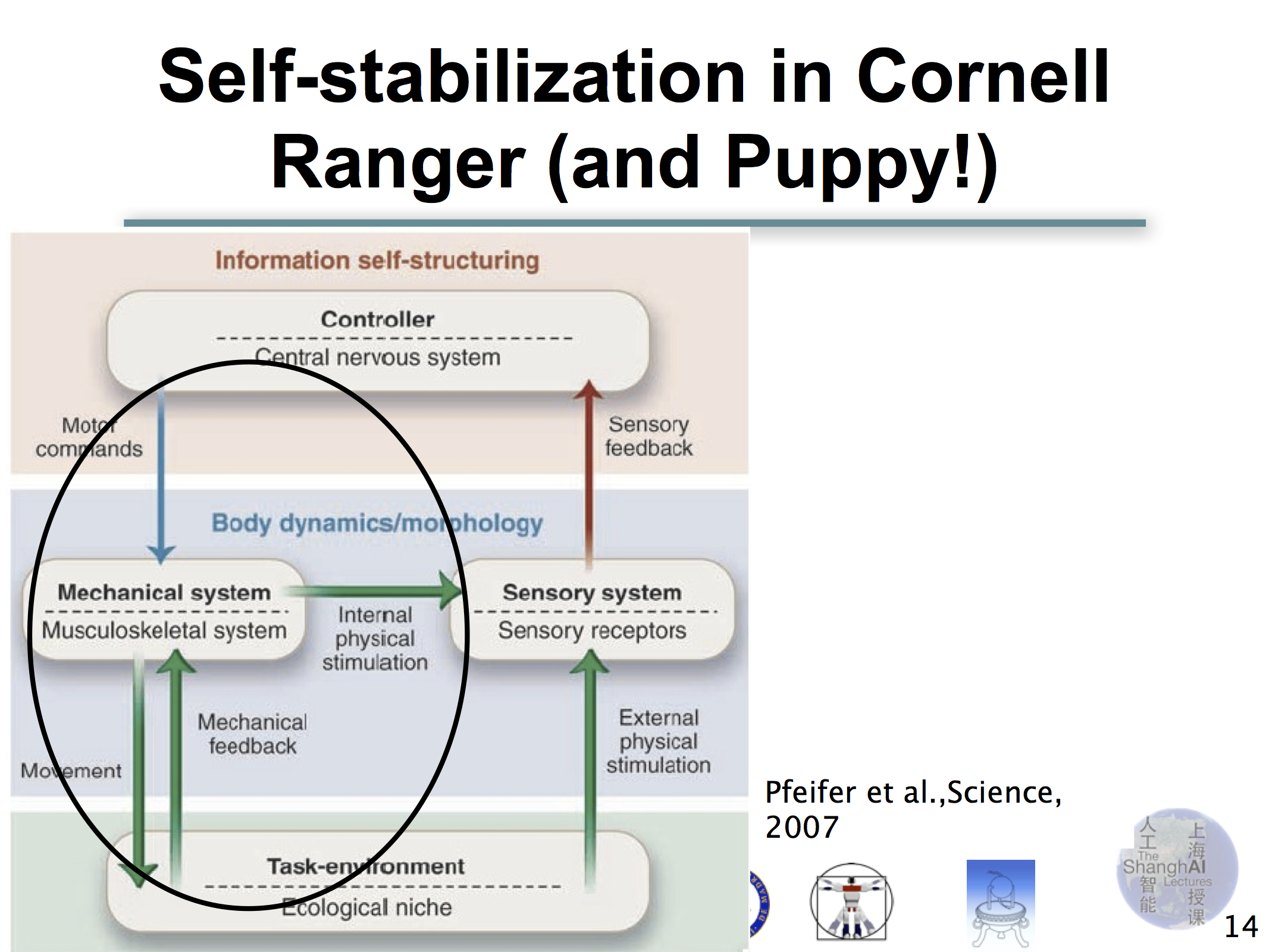
In this lecture, hosted at the University Carlos III of Madrid in Spain, I show how it is possible to ground ‘understanding’ on data streams coming from the physical interaction of an agent in the environment, and discuss the many open issues that remain. For example, setting information theory in an embodied framework is challenging, but the road ahead looks promising. So, what’s the link between locomotion to cognition? Is there one? Check out the lecture:
“Motor primitives and compositionality: From humans to the Octopus” by Tamar Flash
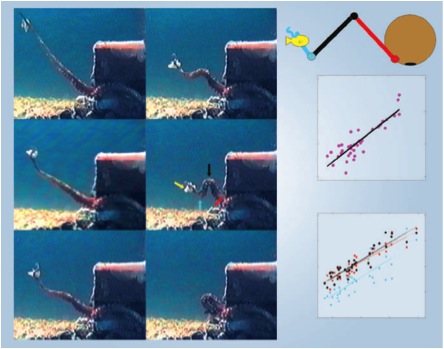
There is more to motion learning and planning in humans and animals than is usually thought. Some weird mathematics such as Lie algebras seem to shed some understanding on motion planning in animals (humans included), and could help toward the devlopment of robotics systems that are similar to natural embodied intelligent agents. Prof. Flash, from the Dept. of Applied Math. and Computer Science at the Weizmann Institute of Science in Israel does research on motor control in humans and robotic systems. Her current interest is in investigating the neural control of flexible hyper-redundant arms in the Octopus. Want to learn more? Have a look here:
Prof. Flash is from the Dept. of Applied Math. and Computer Science, The Weizmann Institute of Science, Israel.
Guest Lecture – “Autopoiesis” by Luisa Damiano
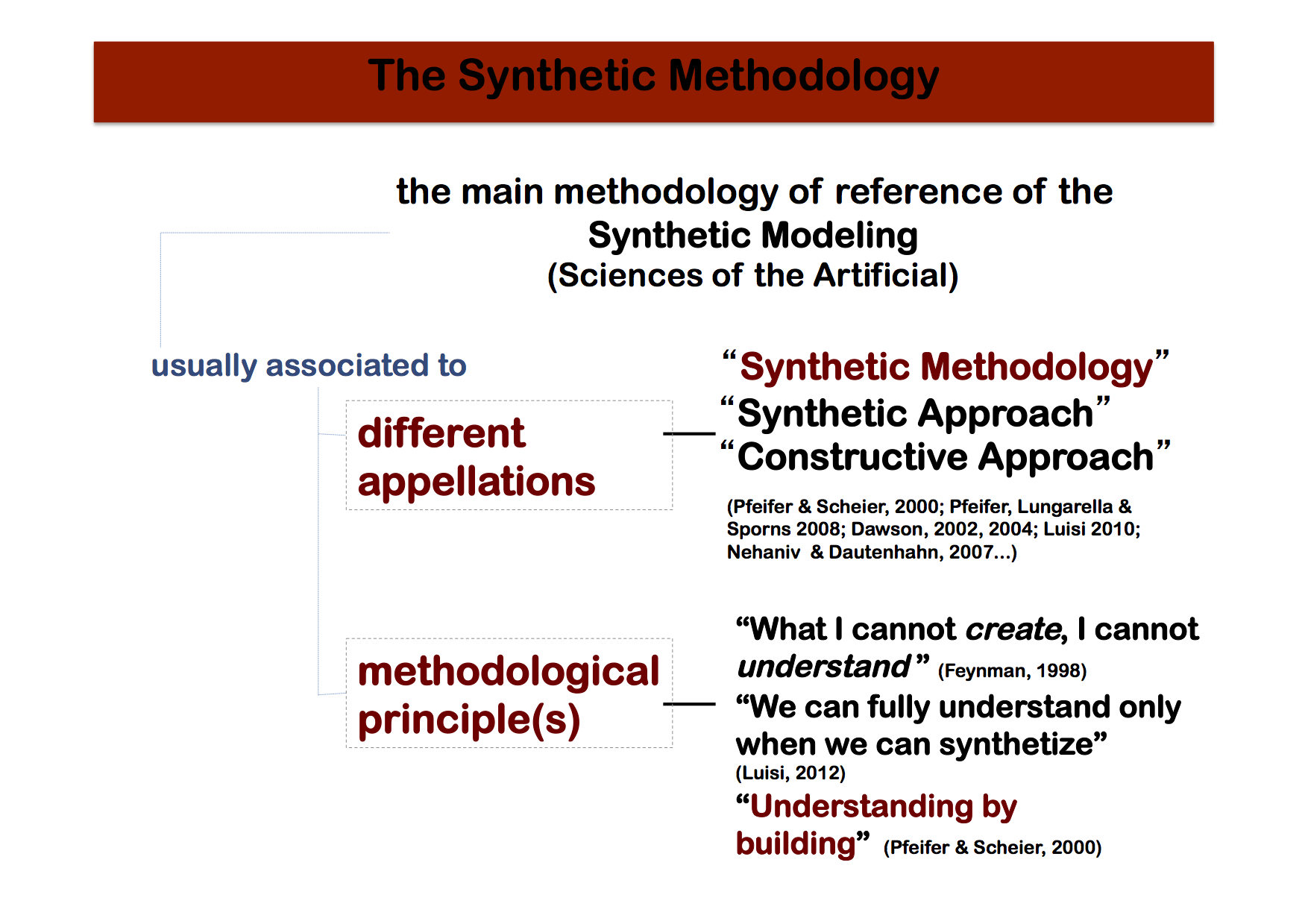
Philosopher Luisa Damiano, Associate Researcher in Philosophy of Science at the Research Center on Complex Systems (CERCO) of the University of Bergamo and founder of the Epistemology of the Sciences of the Artificial Research Group (ESARG), takes a critical look at ‘synthetical methodology’ and looks beyond the context of robotics AI/cognition to include ‘Autopoiesis’ – a concept introduced by Maturana and Varela in the epistemology of Life Sciences. Curious about ‘synthetic methodology’ outside robotics and cognition? Do you want to know what ‘Autopoiesis’ means? See here:
Guest Lecture – “The two souls of synthetic biology: Experimental approaches” by Luigi Luisi
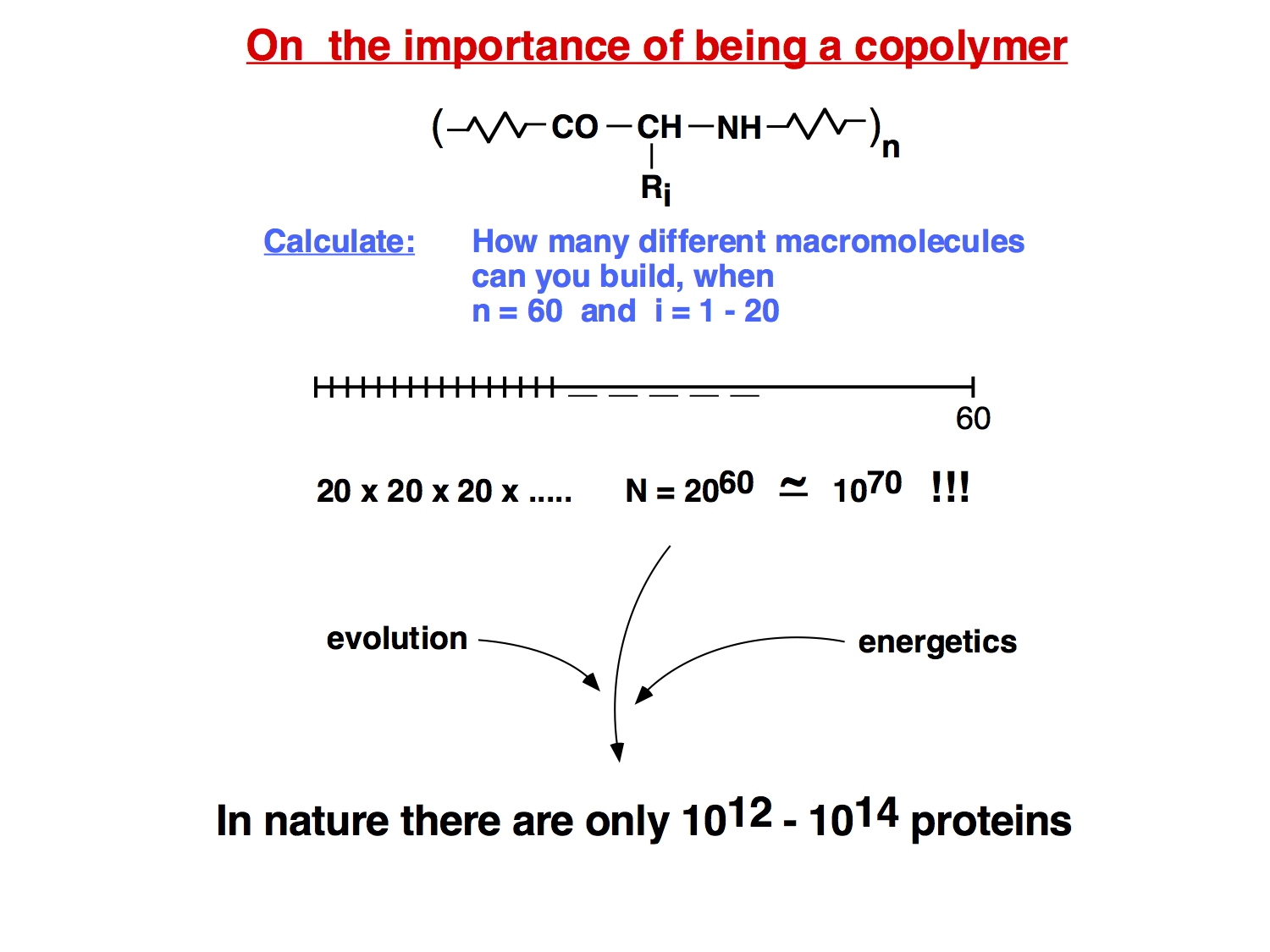
What is a minimum set living system? Why are certain proteins used in natural living systems but not others? Couldn’t it just be by ‘contingency’? Professor Pier Luigi Luisi is a leading researcher in synthetic biology, and his latest book is called The Emergence of Life: From Chemical Origins to Synthetic Biology. He is currently writing a book with Fritjof Capra. Watch Luisi’s lecture:
About the ShanghAI Lectures
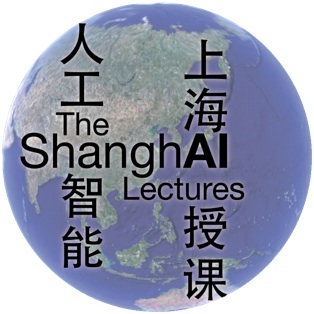 While in the classical approach “intelligence” was essentially viewed as information processing taking place in the brain, the more recent insight that interaction with the environment is of central importance is gaining acceptance. This has led to the metaphor of embodiment, i.e., that intelligence is always a property of an entire organism — an idea that has far-reaching implications and often leads to surprising insights, but which has not so far been widely exploited in industry practice.
While in the classical approach “intelligence” was essentially viewed as information processing taking place in the brain, the more recent insight that interaction with the environment is of central importance is gaining acceptance. This has led to the metaphor of embodiment, i.e., that intelligence is always a property of an entire organism — an idea that has far-reaching implications and often leads to surprising insights, but which has not so far been widely exploited in industry practice.
The ShanghAI Lectures project aims to:
- Build a sustainable community of students and researchers in the area of Embodied Intelligence
- Make education and knowledge on cutting-edge scientific topics accessible to everyone
- Explore novel methods of knowledge transfer
- Overcome the complexity of a multi-cultural and interdisciplinary learning context
- Bring global teaching to a new level
These lectures about Natural and Artificial Intelligence have been held via videoconference at the University Carlos III of Madrid in Spain, the University of Zurich in Switzerland, Scuola Superiore Sant’Anna of Pisa, Italy, Humboldt University Berlin in Germany, University of Plymouth and University of Salford in the UK, and 10 other universities around the globe. Students from the participating universities are still working together on the exercises, using Webots by Cyberbotics, and Ludobots by the University of Vermont.
The lectures have also been streamed to allow remote participation to anybody.
The ShanghAI Lectures differ from ‘conventional’ MOOCs as they exploit telecommunication technology to build a global, distributed lecture hall that allows rich interaction rather than simply implementing the good old fashioned TV broadcasting model on a different medium. They also differ from other AI courses as they propose a new paradigm approach to embodied cognition (a.k.a. AI and Robotics). It is a kind of Copernican revolution with respect to GOFAI and its robotics application — and thus a research program for the coming decades.
This year I coordinated the lectures, with help from Prof. Rolf Pfeifer and Dr. Nathan Labhart at the University of Zurich . Rolf Pfeifer and I provided the context (introduction, moderation, and conclusion). As always, there were 2-3 invited guest lectures each week.
tags: Algorithm AI-Cognition, c-Research-Innovation, embodied intelligence, Fabio Bonsignorio, ShanghAI Lectures 2013





